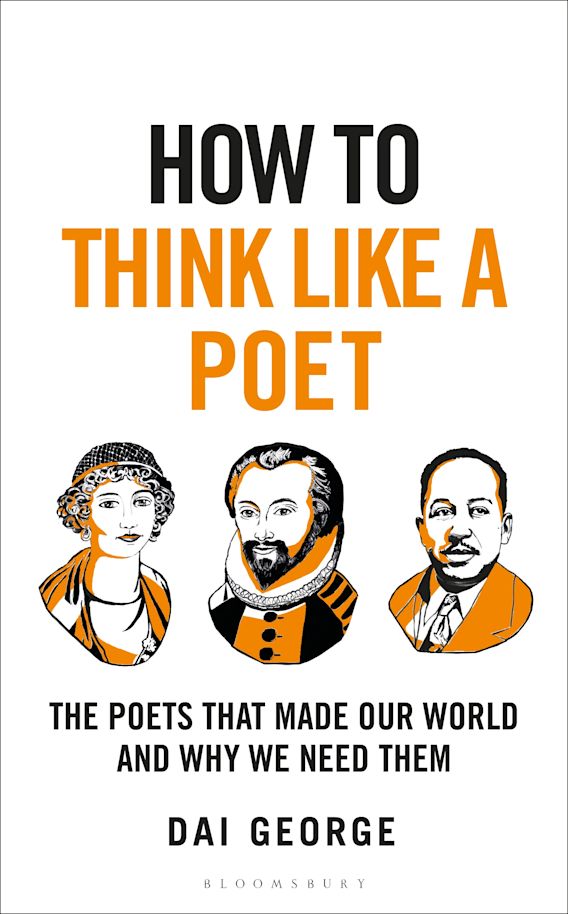In this exclusive extract from How to Think Like a Poet, novelist and poet Dai George shares his take on how poetry is the art of thinking.

Poetry is the art of thinking. At one level, this might sound obvious. Pretty much everything requires thought, so in a sense poetry is no different from any other type of human endeavour, from moving an arm to sending a spaceship into orbit. But there’s a difference between these other activities, important as they are, and the strange cognitive encounter that takes place when someone reads or writes a poem. You could say that movement and aeronautics – or cookery, politics, caregiving, chess – are the products of thought rather than a record of thinking itself.
They take the messy impulses of the brain and convert them into something else: something useful and external. Poetry, meanwhile, brings us as close as we can get to the unmediated sound of the human mind in action. It lets us eavesdrop on all the inklings, tangents, flashes of insight, shouts of joy or grief and complicated, half-formed notions that it would be almost impossible to capture if we didn’t have this art form. Each poem is a public rendering of the mental drama that whirrs away behind the scenes throughout one’s life. It can be about anything and go anywhere. All that matters is that it hits on something striking or beautiful and worth setting down for its own sake. The American poet John Ashbery put it nicely. ‘I don’t look on poems as closed works,’ he said. ‘I feel they’re probably going on all the time in my head and I occasionally snip off a length.’
This book is an attempt to get to grips with this rich and mysterious subject. What do poets think about? Or, to put a different spin on the same question, what kinds of thinking count as ‘poetic’? I want to trace how these ideas have evolved down the centuries, in step with broader shifts in literary taste. At the same time, I hope it will be a thought-provoking romp through the history of poetry, introducing some key figures who have contributed to the current state of the art. From age to age, there’s never been anything that you could describe as a poetic consensus. In general, poets are an argumentative species,addicted to manifestoes and theories, constantly defining themselves against what’s come before. (I’m allowed to say this because I’m a poet, and I can hardly agree with myself from one day to the next.) But we’re also a broad and ever-expanding church. We argue because it matters – because we care.
Dai George is a poet, novelist, critic and academic based in London. His first poetry collection, The Claims Office, was an Evening Standard book of the year and his second, titled Karaoke King, was published by Seren in June 2021. His first novel, The Counterplot, was published as an Audible Original in 2019, and he is currently working on his second. He is the former reviews editor of Poetry London and has taught poetry and creative writing for many years in his role as lecturer at Swansea University and at UCL. His poetry has appeared widely in magazines and anthologies, including Poetry Review, Poetry Wales and Islands Are But Mountains: New Poetry from the United Kingdom. His criticism and non-fiction features in popular and academic forums including the Guardian, The White Review, and Cambridge Quarterly. Alongside Sarah Howe and Vidyan Ravinthiran, George was a founding editor of the online poetry journal Prac Crit, which drew a large global readership across its five-year lifespan.
Comments